Guest blog by Laura Nurse, Materials submitted by Jacquelyn Morgan
This story first appeared in Gwinnett County Public Schools’ online magazine, Communiqué
While Norcross is experiencing chilly weather now, warm and sunny days will return in the spring. With warmer weather, the City of Norcross—a certified Bee City USA affiliate—will be open for pollination, welcoming migrating butterflies and birds, busy bees, beetles, and more to sites across the city, including pollinator gardens at three Norcross schools.
One of the initiatives of the Sustainable Norcross Commission is to educate school communities, residents, and businesses about sustainability practices. A team of community volunteers and business partners have taken a hands-on approach by building pollinator-friendly gardens at Beaver Ridge Elementary School, Norcross Elementary School, and Summerour Middle School to help teach students about the importance of pollinators and what we can do to support them. The gardens are filled with flowering plants that attract pollinators. Newly installed rain barrels ensure the gardens have a ready and sustainable supply of water while also teaching students about conserving natural resources. The Bee City USA – Norcross gardens include pollinator-friendly plants and trees like butterfly milkweed, blue-stem goldenrod, red buckeye, coneflower, black-eyed susan, and redbud.
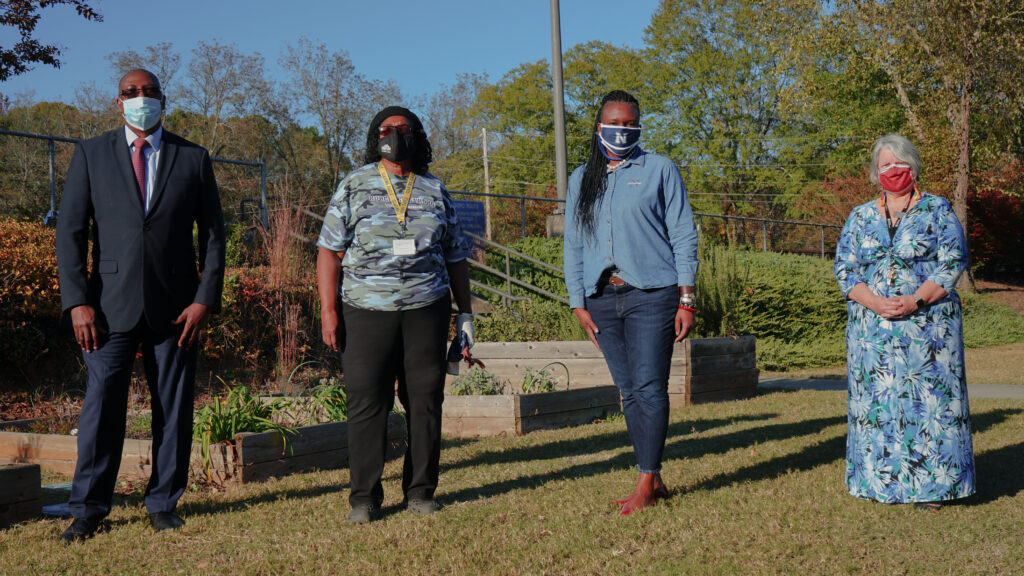
Jackie Petree, the science specialist at Norcross Elementary School, says the school’s garden is an invaluable teaching tool. “Students see actual plant and insect life cycles rather than learning about them through books or pictures. This allows them to ask questions and develop observation skills,” she says.
And students’ observations show that they are connecting their garden lessons with the world around them. “The garden helps kids understand how living things in our environment act together,” says Sebastian, a 5th grader. Alisha, a 3rd grader, likes learning how vegetables and flowers grow. “It is important to know how that happens,” she says. 4th grader Mylah appreciates the way plants help humans. “They give us food and oxygen. It takes a lot of effort, but it is good for us and the environment,” she says. “The butterflies, bees, and birds need things to eat so a garden is good,” says Mason, a 1st grader. “We need to give the plants water when there is no rain.”
Jacquelyn Morgan, a member of the Sustainable Norcross Commission, wants students and residents to “bee sustainable.” While working as a long-term substitute teacher in Norcross schools over the past 15 years, Mrs. Morgan has witnessed the decline in pollinator-friendly gardens in the area. Concerns about the impact prompted her to launch the garden project for the schools. Mrs. Morgan worked with her husband, Glenn, to clean out old garden beds, build more raised beds, provide select plants to support pollinators, and obtain rain barrels from Gwinnett Water Resources.
After more than 450 hours of community service, the project was completed on December 6. Mrs. Morgan says the many hours of research, clearing and building beds, making plant-a-grams, visiting nurseries, and partnering with various stores to assist the project have been worth it.
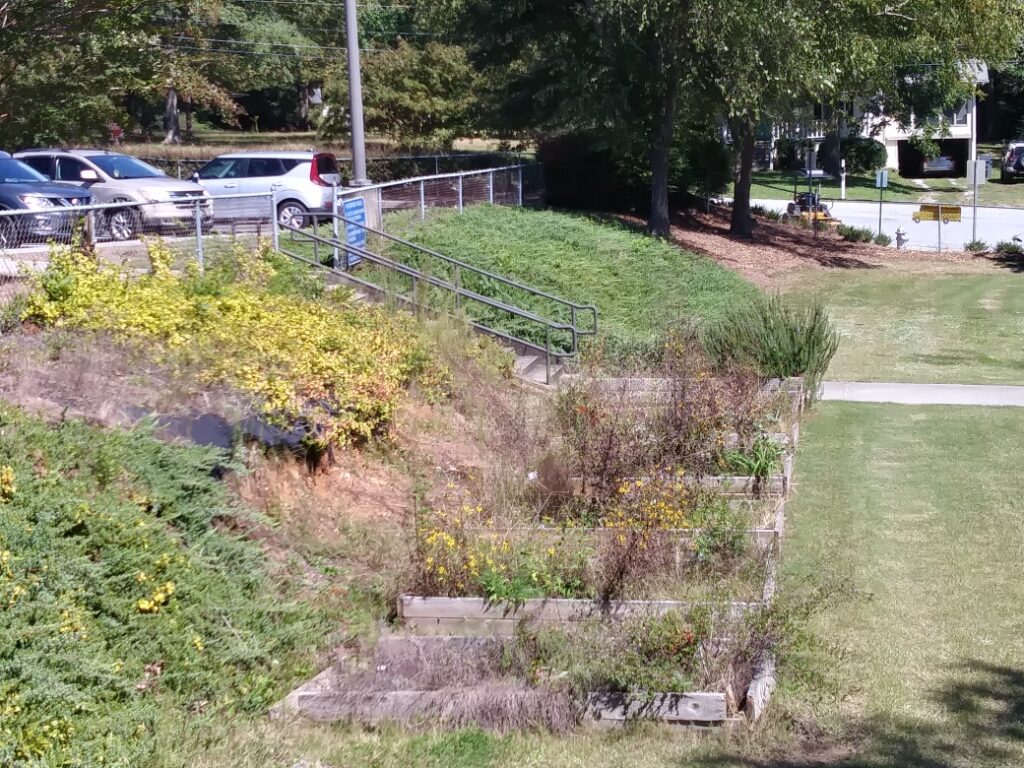
Garden beds at Norcross Elementary School before being planted as pollinator habitat. 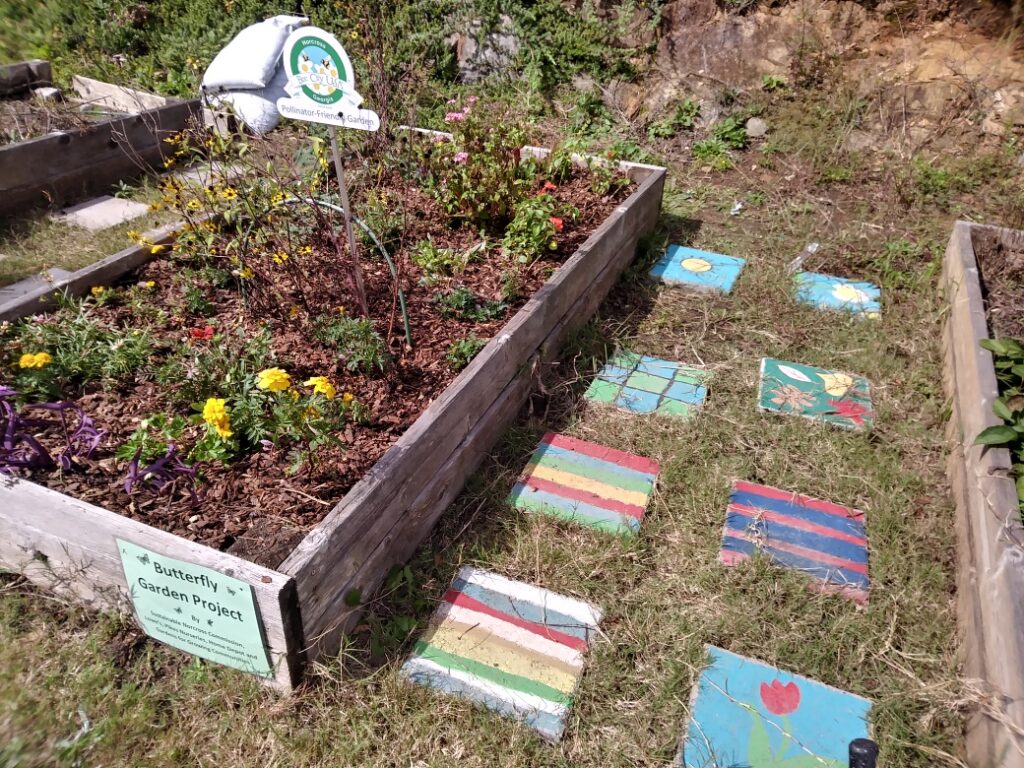
Raised beds at Norcross Elementary School now feature native plants to support bees, butterflies, and other pollinations.
Since October, the students have been able to visit the gardens to see butterflies, hummingbirds, bees, and birds. Even in December, butterflies are still at work. “When students visit the garden this winter, most of the flowers will be spent, but not their excitement for what is to come,” she says of the hands-on and visual learning project that brings the life cycle of the butterfly to life for the students. Thanks to Kim Fritz of UGA Extension, students will be able to plant pollinator seeds and grow seedlings indoors during the winter months to be planted in the gardens come springtime.
So, why are pollinators and pollinator-friendly gardens so important? Most of the world’s flowering plants—about 90%—depend on pollinators to reproduce. Those crucial pollinators include birds, bees, butterflies, beetles, and small mammals, and they are responsible for bringing us one out of every three bites of food! Pollinators travel from plant to plant, carrying pollen on their bodies and ensuring that plants are fertilized so they can produce flowers, fruit, vegetables, and nuts. Unfortunately, native pollinators are facing decline due to habitat loss, poor nutrition, and exposure to poisons. One way to reverse those losses is by developing friendly gardens like those housed at the schools. Families can also help the effort by making their own yards a healthy sanctuary for wildlife.
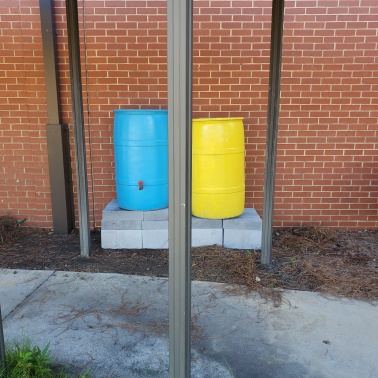
Rain barrels at Norcross Elementary School collect water for use in the pollinator garden. 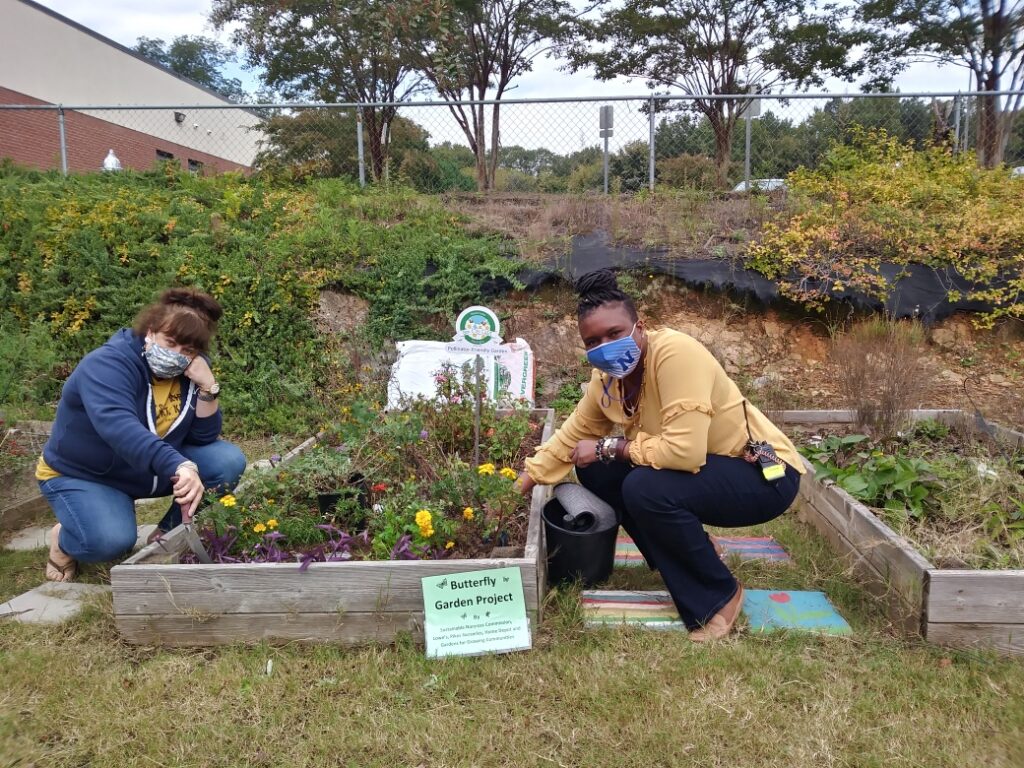
Principal Sutton and Ms. Dennis help maintain pollinator plantings at Norcross Elementary School. 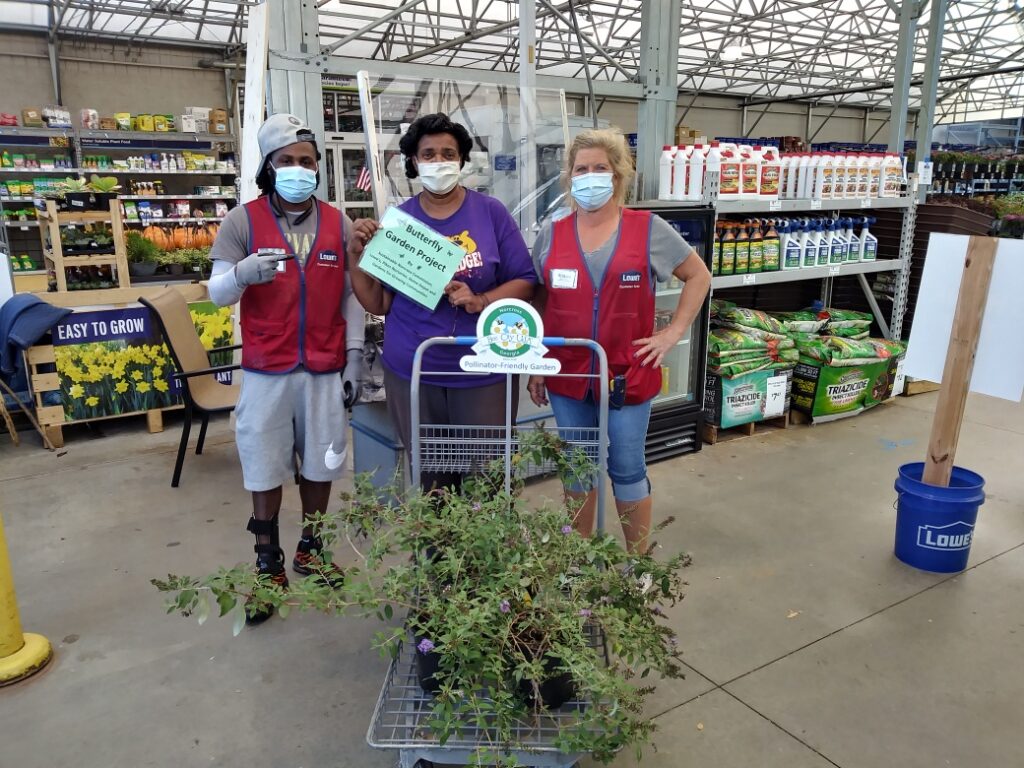
Lowes associated help select plants for pollinator gardens.
“We are so excited about our butterfly garden here at Beaver Ridge,” says Jennifer Atkins, who teaches K-5 science specials at the school. The Beaver Ridge garden was recently completed, and come spring, her students will get their first opportunities to explore the new space. Students in 1st grade will collect and graph data on the different pollinators that visit the garden and learn to read a rain gauge, while children in 2nd grade will be able to observe insect life cycles. Ms. Atkins notes that her littlest scientists in kindergarten now have the perfect place to compare living and nonliving objects as they observe plants and animals in their very own garden. “I am looking forward to our spring semester when the garden is flourishing and the butterflies are active,” she says.
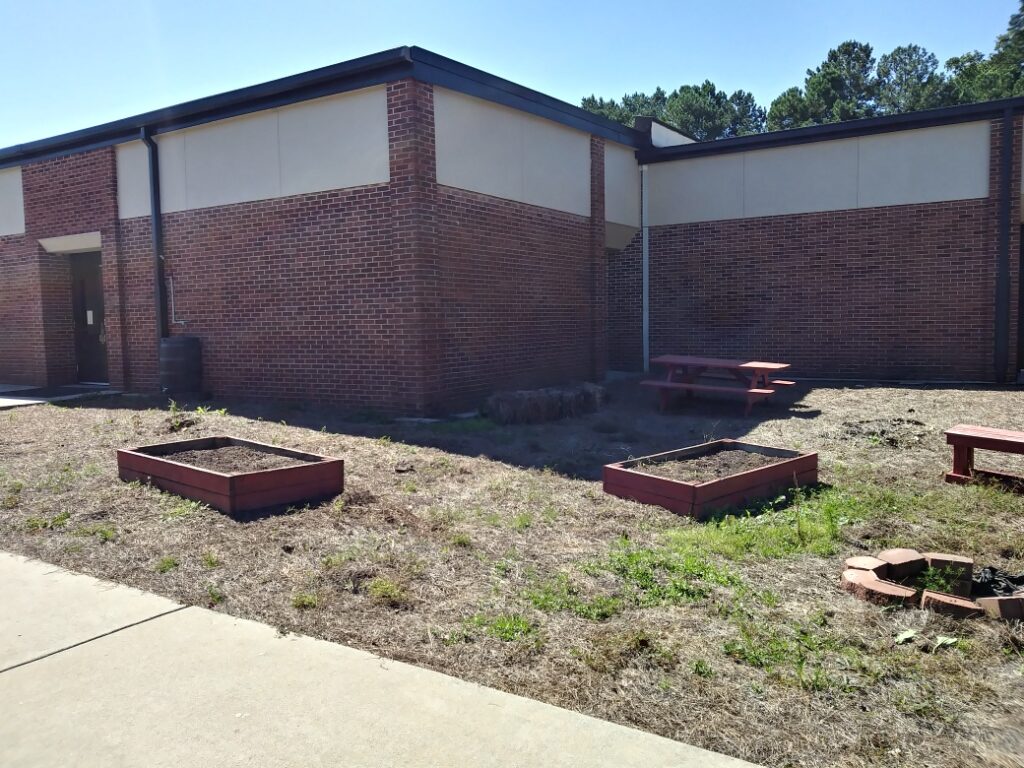
A planting area at Beaver Ridge Elementary School before the new school garden was planted. 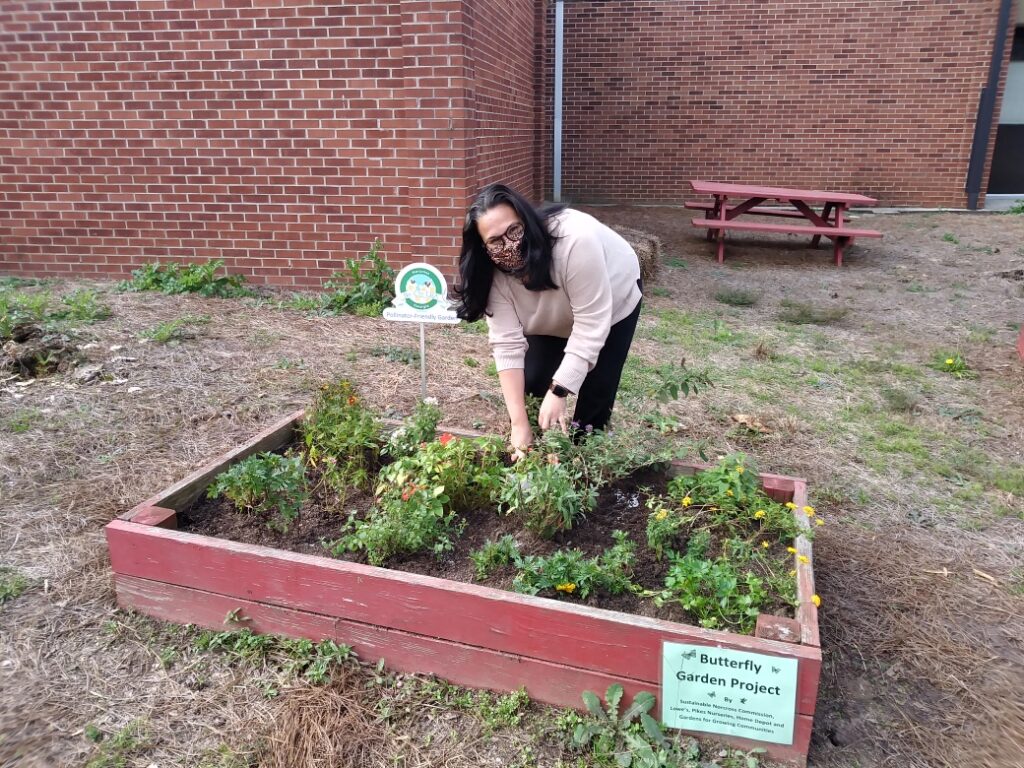
A Beaver Ridge Elementary School teacher helps plant the new pollinator garden.
School gardens also help students develop the skills they need to keep a home garden themselves and introduce children to healthier eating habits as well. “A student may never eat salad at home,” says Ms. Petree, “but if you allow them to pick the lettuce, carrot, or stalk of broccoli they grew, they will tell you it’s the most amazing thing they have ever eaten.”
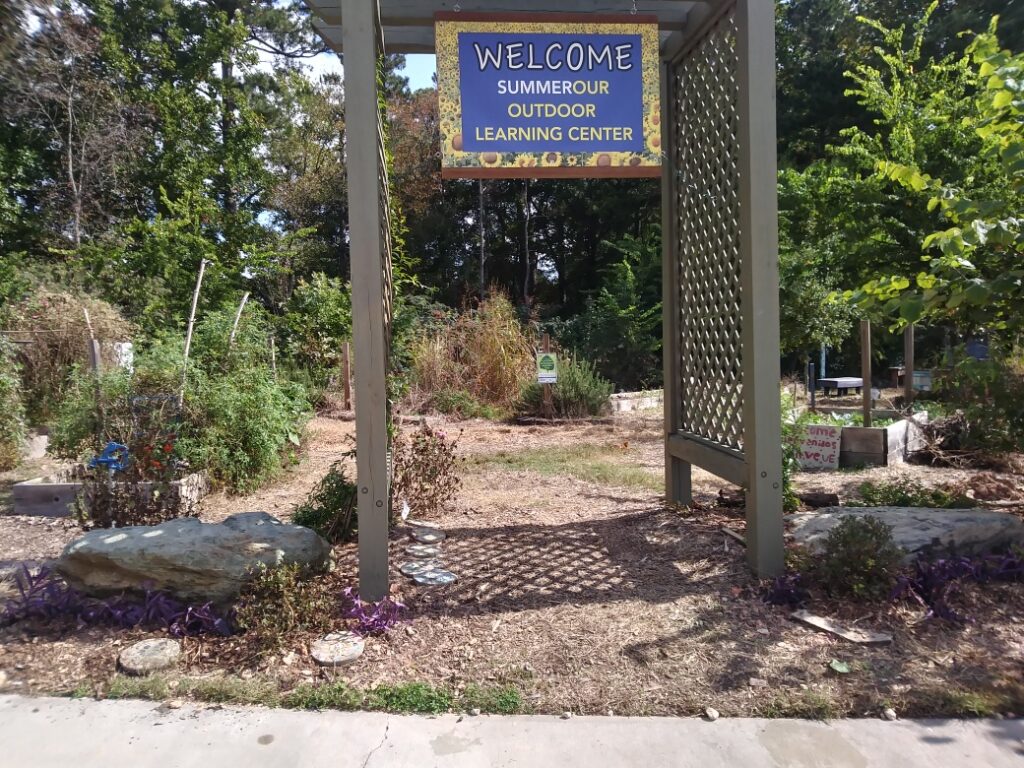
Summerour Middle School’s Outdoor Learning Center. 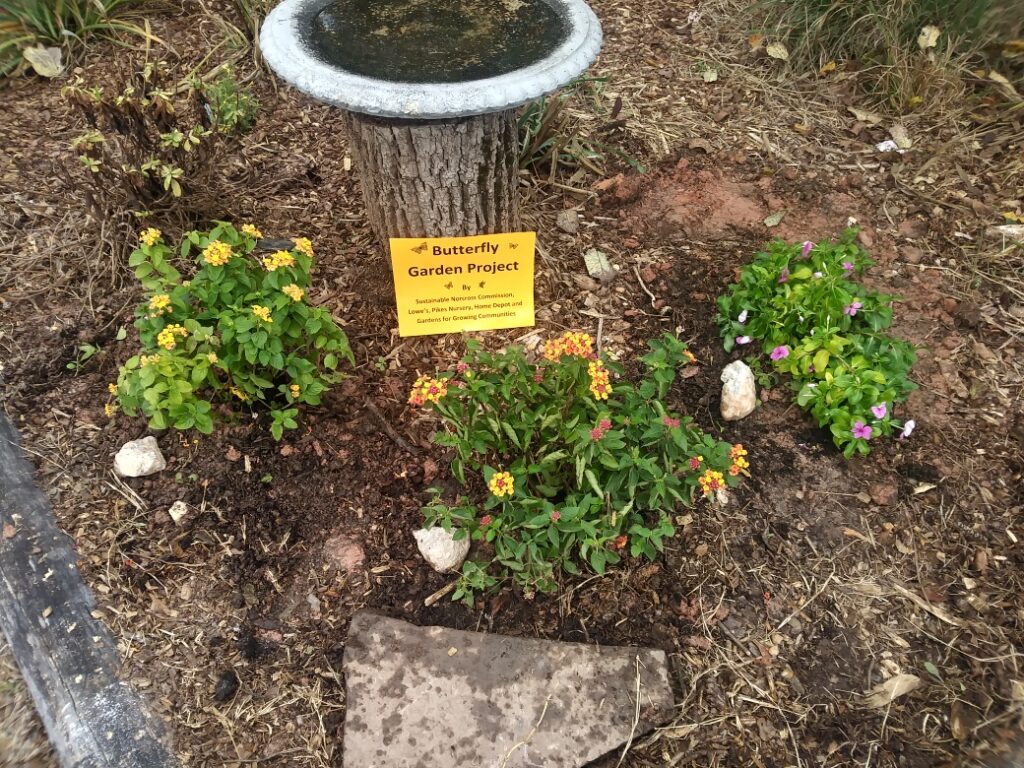
Summerour Middle School’s pollinator-friendly habitat. 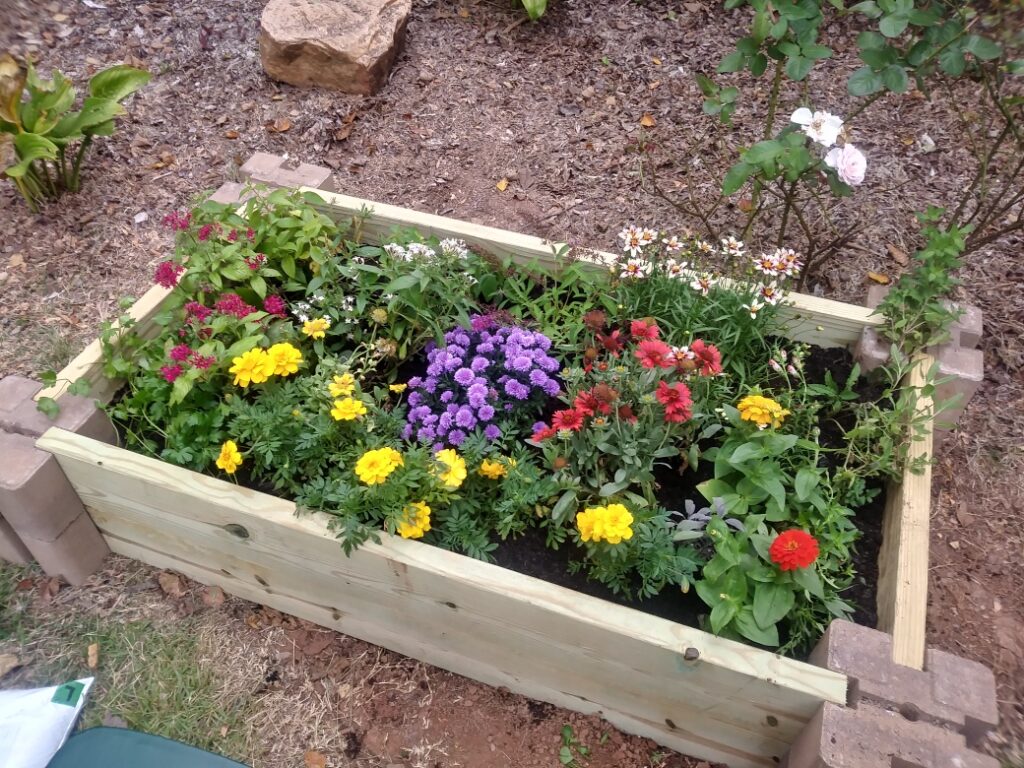
Jackie Morgan’s pollinator garden attracts kids from throughout the neighborhood to learn about pollinators and gardening.
Mrs. Morgan notes that community members can help boost at-home gardens. She says, “We are taking donations of seeds to give to the students to take home to plant butterfly gardens with their families to provide hand-on learning and more educational awareness.”
This fall, masks and social distancing have become the norm for student gardeners who have to keep their distance when they spot a carpenter bee or butterfly in their garden. Ms. Petree says they are making it work in this new normal. She’s even “Zoomed” a garden visit with online students. Spring will be a busy time for the school gardens, the gardeners, and the pollinators! Students will plant seeds, identify re-emerging perennials, and watch for and count pollinators. “We will look to see which pollinators like which plants best and discover why,” Ms. Petree says. “Students will evaluate the garden to determine what changes need to be made to meet the needs of plants, pollinators, and wildlife.” With their results, the students will create and execute garden plans to support their garden visitors.
For all the important work done by visiting pollinators and the students who tend the gardens, having a garden provides something else to the community. “The garden adds an aspect of beauty to our world,” says Sarah. “My favorite things are the butterflies and bees,” says Elizbeth, a kindergartner. “I like to sit and watch them.”
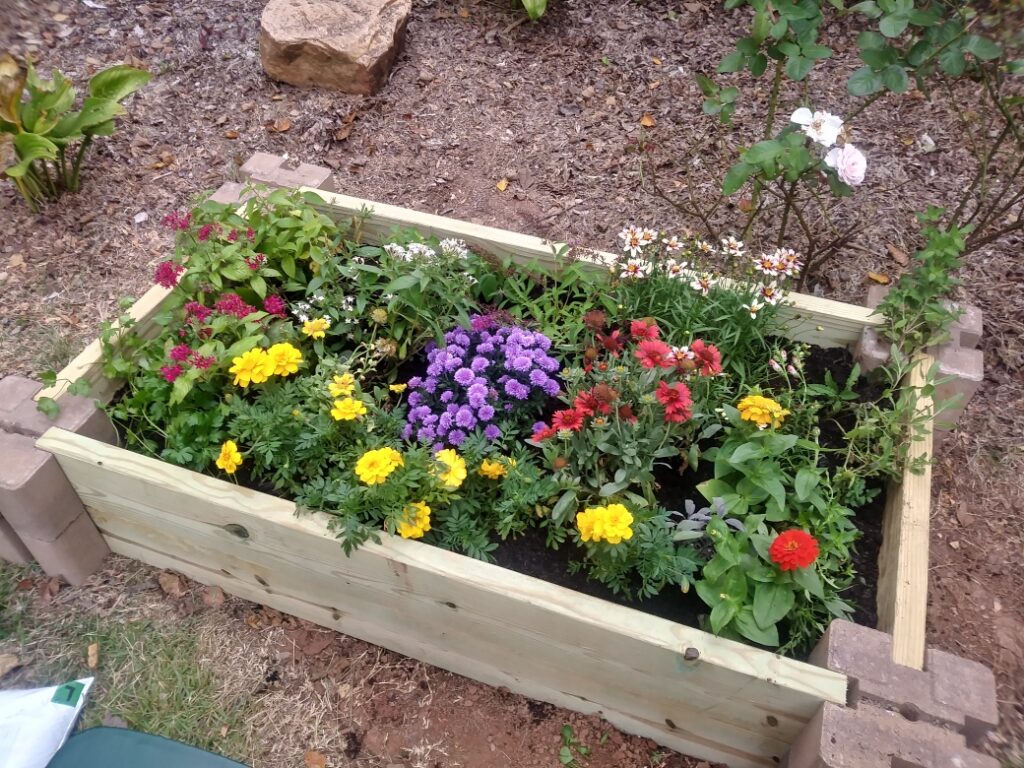
Jackie Morgan’s pollinator garden attracts kids from throughout the neighborhood to learn about pollinators and gardening. 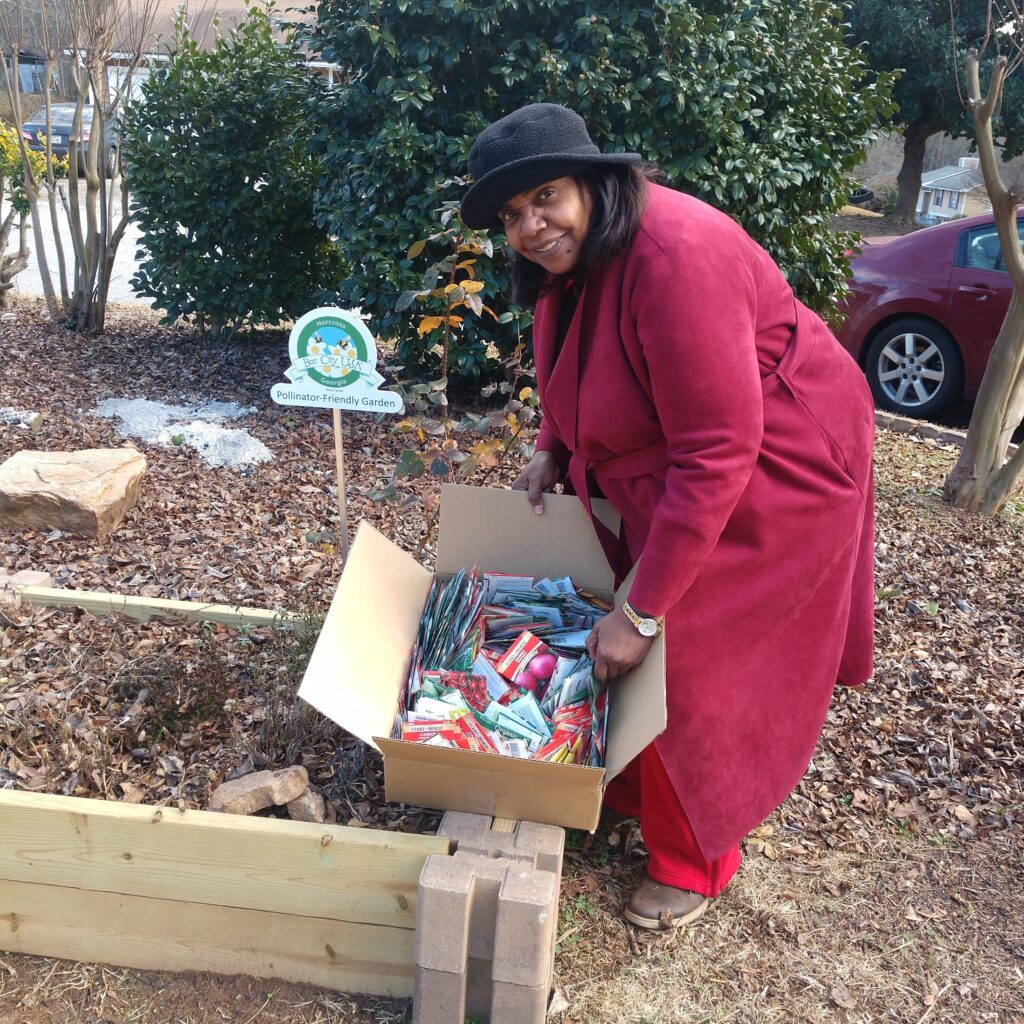
Jackie Morgan with a box of seeds donated to the school garden project.
Partners in the initiative include Bee City USA – Norcross; Jacquelyn Morgan of the Sustainable Norcross Commission; Glenn Morgan, Gardens for Growing Community; Victory World Gardening Small Group; school volunteers and Board Member Louise Radloff; Norcross Mayor Craig Newton; the district’s Facilities and Operations Division; Kim Fritz of UGA Extension; and local nurseries, including Lowe’s, Pikes Nurseries, and Home Depot.





